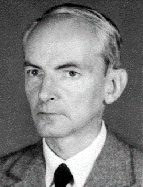

If the humanists were decisive for the outbreak of the Renaissance, the arts and literature, and the recovery of the classics of the Greco-Latin world, their effect on science was not so positive, given the excessive veneration of the ancient—which is still felt in the work of Copernicus—and the contempt for experience. Hooykaas found ample signs of this conservatism—that showed contempt for manual labour—in the humanists active in Portugal, such as Sá de Miranda, Francisco de Holanda and António Ferreira, or professors at the College of Arts in Coimbra, such as Arnaldus Fabricius, George Buchanan or Élie Vinet; the only significant exception—because his adventurous life made him travel a lot and he became friends with Garcia da Orta—was Luís de Camões, the humanist poet who makes the case for the "knowledge of experience" in " Lusíadas" [Lusiads], defending an empiricism that is not against reason but against rationalism (especially Scholasticism), since reality goes beyond the expectations of reason (Idem, 1966/1983, pp. 581, 587-588, 591-594; Idem, 1981, pp. 236-238, 327-328, 342, 424; Idem, 1999, pp. 185, 201). Hooykaas developed the theme of the humanists' reaction in the 16th century in his long study on Castro (Idem, 1981, pp. 233-245) and in the book "Humanism and the voyages of discovery..." (1979).
Citing authors linked to the navigations (Diogo Gomes, Pacheco Pereira, João de Barros, Pedro Nunes, João de Castro), Hooykaas shows how they denounced the errors and incompleteness of ancient science, emphasising their methodological shift by considering the authority of experience as superior to the a priori reasoning of the ancients, scholastics, and humanists. More specifically, João de Castro insisted on how Reason must adapt to new facts (like in the case of the habitability of the antipodes) and not the other way round, which is why Hooykaas saw this author as a "precursor" of Francis Bacon (Idem, 1966/1983, pp. 582-586, 588-589). Hooykaas analysed the lively conflict between the conservative tendencies of the scholastics and humanists and the abundant evidence of the errors and insufficiency of the ancients and showed that the solution found was "to follow nature wherever it led and, secondly, to respect tradition wherever possible without violating the first directive" (Idem, 1966/1983, p. 587). Exemplifying this attitude of commitment, Pedro Nunes and João de Castro praised and accepted Archimedes' mechanics, Ptolemy's cosmography, and Euclid's maths, noting how the novelties of observation had radically renewed natural history in particular—this was an area where knowledge was more contingent and the bypassing of Ptolemy's geography was evident; Hooykaas praises João de Castro and Garcia de Orta for having an obvious experimentalist attitude (Idem, 1966/1983, pp. 590-591, 594-595). In the Gifford Lectures of 1976, Hooykaas takes up the early cases of João de Castro (in his "Roteiros" written between 1538 and 1541) and Garcia de Orta, stating: "Castro and Orta were exceptionally realistic, free from fables, and unafraid to use their own hands to find the truth about nature"—unlike the Jesuits of Coimbra, whose Aristotelian conservatism went hand in hand with the invocation of experiments they never carried out. However, Hooykaas states that João de Castro remained a deep conservative (Aristotelian) when it came to natural philosophy—an aspect that is evident from reading his "Tratado da esfera" [Treatise on the Sphere]. For this reason, he concludes that "Castro's work shows what science could have been around 1500 if it hadn't interacted with "'philosophical' circles"—in other words, modern experimental spirit was accompanied by a scholastic "philosophical" worldview, in line with the dominant intellectual vision (Idem, 1999, pp. 201, 200). Hooykaas would later call this attitude of compromise—non-revolutionary, as is the case with many scientists, and like Kuhn would insist—between the acquisitions of experience and the portions of ancient knowledge retained (Ptolemaic geocentrism and Aristotelian organicist cosmology without openness to the mechanics of the nominalists) a "Manueline-style science." In architecture, a (conservative) Gothic structure was creatively decorated with non-fantastical decorations, which created a hybrid style. However, this science never reached a system stage and was restricted to fragments of physics, botany, and maths (Idem, 1981, pp. 351, 421-426).
This work is financed by national funds through FCT - Foundation for Science and Technology, I.P, in the scope of the projects UIDB/04311/2020 and UIDP/04311/2020.
